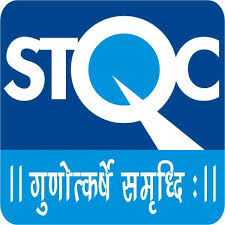Ambassador's interview to China Today
03/31/2015
Chinese Dragon and Indian Elephant Dance to the Same Tune
–An Interview with Mr. Ashok K. Kantha, Indian Ambassador to China
By staff reporter ZHOULIN
THIS year marks the 65th anniversary of the establishment of diplomatic relations between the People’s Republic of China and the Republic of India. To learn more about the relationship between the two countries, China Today interviewed Ashok K. Kantha, Indian Ambassador to China,who shared his insights on the two countries’ bilateral relations on multiple issues including diplomacy, economic and trade cooperation, people-to-people and cultural exchanges, the Belt and Road Initiatives, the boundary issue, and Indian Prime Minister Narendra Modi’s upcoming visit to China this May.
China and India are two of the largest and most populous developing countries in the world, as well as neighbours and cooperation partners. Can you give us a brief evaluation of the relations between the two countries?
First, I would like to convey my best wishes to China Today’s readers for a happy and prosperous Year of the Sheep. This year we are jointly celebrating the 65th anniversary of diplomatic relations between India and China. Our relationship has come a long way since the establishment of relations in 1950 and there has been enormous development in all spheres – be it in the bilateral, regional or multilateral context.
Since 2005, when we established the strategic and cooperative partnership for the peace and prosperity of India and China – a decision with which I was closely involved – we have seen an all-around development of relations between our two countries; we have seen increased frequency of high-level visits and exchanges,including those at the top leadership level; we have seen a big jump in our economic relationship; and we have expanded cooperation in the defence and security domain. We are today making great progress in people-to-people exchanges; we are rediscovering ancient cultural linkages between our two great countries and civilizations; and we are also developing cooperation in new areas: Smart Cities, civil nuclear cooperation, space and exchanges between provinces of our two countries. Overall, the development of our relationship in the last decade has been positive and most impressive.
I would like to especially highlight our people-to-people relationship. Last year, we celebrated the Year of India-China Friendly Exchanges. We organized the Glimpses of India festival in 14 Chinese cities and its success has given us confidence in further such engagements in the future.
Of course, there are some outstanding issues, but there is a mutual agreement that our two countries will address them and not let them get in the way of the all-around and comprehensive development of our relations. Our relationship has matured and yet remains full of potential.
A few days ago, Foreign Minister Wang Yi addressed a press conference and quoted Mr. Deng Xiaoping as saying that no genuine Asian Century would come about without the development of China and India. Today, we are witnessing the remarkable and simultaneous re-emergence of our two great civilizations. We are chasing our respective dreams and are seeking national development and national unification. And we believe that there is a consensus between us that this process must take place in a mutually supportive manner.
Through the years, China and India’s bilateral economic and trade exchanges have continued to go from strength to strength; China is becoming one of the largest trade partners of India. It is predicted that by the end of 2015, bilateral trade volume will reach US $100 billion. How do you view these achievements and what measures will be taken to realize this target?
According to Chinese trade statistics the bilateral trade volume was over US $70 billion last year and so our goal for 2015 looks to be an ambitious one. But, there is one issue that needs to be addressed with a matter of urgency, and that is India’s big trade deficit.
In 2014, Chinese data showed that India’s trade deficit with China was about US$38 billion; according to our data, the deficit was around US $45 billion,which accounted for one-third of India’s global trade deficit. That is a concern on both sides. We are committed to expanding our trade relations with China in order to address this. We seek better market access in China for Indian products and services that have a comparative advantage. We believe we have a certain competitive edge – be it in IT services or pharmaceutical products. We believe that if we have better access to the Chinese market our exports will increase.
Next,we have to work with our Chinese friends to diversify and broad-base our economic engagement. We must ensure two-way investment flows. As I have mentioned before, the potential for cooperation is huge. During President Xi Jinping’s landmark visit to India last September, we signed a five-year action plan to promote economic relations between India and China. Prime Minister Narendra Modi has invited Chinese companies to come and participate in the economic development of India as partners. Specifically, we would like to see more Chinese engagement in the manufacturing and infrastructure segments. Prime Minister Modi launched the Make in India campaign in September 2014. It has received very good response from both domestic and foreign investors. There is exciting potential for Chinese companies and entities to join in this unfolding campaign. The growing economic engagement between our two countries can and should be a win-win situation.
In 2014 the Ministry of Finance of India budgeted to build hundreds of Smart Cities, and Chinese science and technology industries were welcomed to take part. How will you encourage the Chinese government, Chinese enterprises and social organizations accept the invitation? What do you hope China will bring to the table?
Smart and sustainable urbanization is India’s priority and Prime Minister Modi has attached great importance to the initiative of Smart Cities. We have already embarked on this program for 100 cities.
We are now looking at China as our prospective partner in this initiative. When President Xi Jinping visited India last September, we proposed that India and China should work together on one Smart City in India and one Smart City in China as a pilot project.
We would like to benefit from China’s experience and expertise in setting up Smart Cities. Indian companies have their own competence in this area, particularly in the IT sector. We can benefit from each other’s experience and contribute to each other’s programs.
In the autumn of 2013, President Xi put forward the Belt and Road Initiatives. What does the Indian government think about the initiatives? What are our mutual interests in this regard?
We are very closely following these important initiatives and are aware that the Chinese government has attached high importance to them. However, some of the details have not been spelled out. At the same time, we understand that they are an important aspect of China’s connectivity agenda and neighbourhood strategy. India also has its own plans of developing connectivity with countries of the region including China. Our approach is that wherever we have mutual interests and synergies we must work together. Thus, we are working together on the BCIM Economic Corridor and the AIIB.
2014 was the Year of China-India Friendly Exchanges. How do you view the people-to-people exchanges and cultural cooperation between them? What successes have there been in enhancing understanding between our two peoples?
People-to-people exchanges between China and India are particularly important.
As I mentioned earlier, we organized the Glimpses of India Festival in 14 cities of China last year. It helped us build connections at the provincial and sub-provincial levels. We established sister province relationships between India’s Gujarat State and China’s Guangdong Province, and also set up sister city relationships. Increasingly, we are involving provinces in building friendship between our two countries, which is very important because both India and China are such large countries that we cannot have a relationship exclusively between Beijing and New Delhi. We must engage the provinces to help promote bilateral links.
One of the outcomes of President Xi Jinping’s visit to India last year was the decision he and Prime Minister Modi made to jointly celebrate 2015 as the Visit India Year in China and 2016 as the Visit China Year in India, the objective being to enhance tourism between our two countries.
Last year, over 100 million Chinese tourists travelled abroad, but our share of the number was very small. This year we launched the Visit India Year at a special function in Beijing which was attended by our Foreign Minister Sushma Swaraj and Chinese Vice Premier Wang Yang. Prime Minister Modi sent out a special video message, inviting Chinese people to visit India. This year we will organize a series of activities in different parts of China in partnership with the China National Tourism Administration and other Chinese entities to expand our tourism cooperation. The objective is to encourage better understanding and foster mutual trust among the people.
Last year was the 60th anniversary of the Five Principles of Peaceful Coexistence. China and India have built up a series of dialogues and a communication system to exchange ideas on the boundary issue. What’s your opinion on pragmatic cooperation on defence issues and what does it mean to local affairs and global safety?
On the occasion of the 60th anniversary of the Five Principles of Peaceful Coexistence last year, our Vice President Hamid Ansari travelled to China to attend an important function chaired by President Xi, and which was also attended by the President of Myanmar. As you mentioned, we have set up a series of dialogue mechanisms on different issues, including in the defence and security domain.
We are also discussing the outstanding issues like the boundary question. Both India and China believe that an early boundary settlement is a strategic objective. We would like to see this issue resolved as quickly as possible. We believe that the unresolved boundary question means that we are carrying a burden. Even though we do not let this issue hinder our relations, it does impede the full realization of the potential of the partnership between India and China. Therefore, the talks between the Special Representatives on the India-China boundary question is of strategic importance. While we pursue a nearly settlement of the boundary question, we must also ensure peace and tranquility along the border, which is an essential guarantor for the smooth development of our bilateral relations. There have been incidents from time to time and we would like to ensure that such incidents do not occur. For that, we should fully implement the understandings that have been reached between our two countries.
In early February, Foreign Minister Swaraj paid a visit to China. What’s the significance of this event, especially on promoting India-China relations?
The frequency of high-level contacts between India and China has increased. Last year saw a number of high-profile visits: Foreign Minister Wang Yi went as Special Envoy of President Xi; our Vice President and our NSA came to China; later, President Xi visited India in September. We believe that these visits have contributed to the further development of relations between our two countries. The visit of our Foreign Minister is a continuation of this engagement. There were several important outcomes of the visit – she called on President Xi and had very productive meetings with Foreign Minister Wang Yi and Minister Wang Jiarui; she participated in the 2nd India-China High Level Media Forum organized by the State Council Information Office; as I mentioned earlier, she also launched the Visit India Year along with Vice Premier Wang Yang; further, she also participated in the Russia-India-China Foreign Ministers’ Meeting. Our Foreign Minister was very satisfied with the outcomes of her visit and its contribution to the development of India-China relations.
When we look at the strategic partnership between India and China, one aspect I would like to highlight is that our relationship goes beyond the bilateral dimension. It has great significance also in the regional and global context.We are not only exchanging notes on development but increasingly working together to shape the regional and global agenda. I believe that the Foreign Minister’s visit illustrated that and also helped to prepare for the very important visit by Prime Minister Modi to China this year.
On the subject of Prime Minister Modi’s visit, what is the significance of this event to both China and India?
I believe there is a very strong desire and determination on the part of the leadership on both sides to advance the relationship and develop our partnership in a comprehensive and all-around manner. There are also very significant outcomes of President Xi Jinping’s visit to India. This is the backdrop of Prime Minister Modi’s visit. We believe that the Prime Minister’s visit will be of great importance and significantly contribute to and help in building an even closer partnership between India and China. Through this visit, we hope to put in place a new agenda for pushing our partnership forward, even while implementing the understandings already reached between us.





























